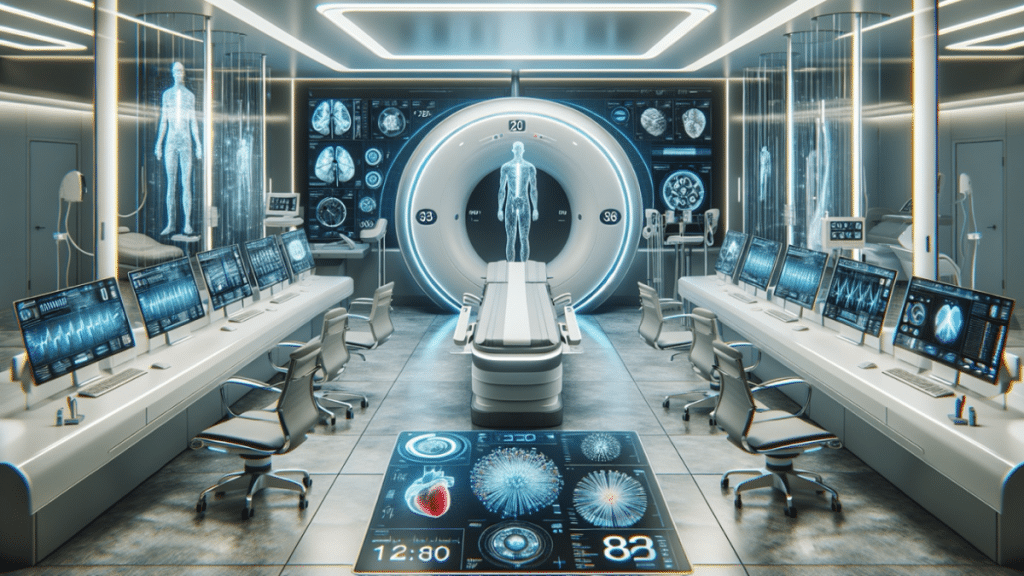In recent years, the field of medical services and technology has seen remarkable advancements. These improvements can significantly impact your health and well-being. Stay informed about these critical developments to make better decisions regarding your healthcare.
The medical field is constantly evolving with new technologies and treatments. Keeping up with these changes is essential for maintaining your health. This article will guide you through some of the most important advances every man should be aware of.
Innovations in Men’s Health Screenings
Regular health screenings are a crucial part of maintaining overall well-being. New advancements in screening technologies now allow for earlier detection of conditions such as prostate cancer, cardiovascular diseases and diabetes. Early detection often leads to more effective treatment options and better outcomes. For example, MRI scans have become more precise, enabling doctors to detect anomalies that traditional methods might miss. Additionally, there are now more comprehensive blood tests that can provide a detailed analysis of your health status, offering insights into potential risks before they become serious issues.
Another important advancement is the development of non-invasive procedures. For instance, the UroLift System offers a less invasive option for men suffering from benign prostatic hyperplasia (BPH). Similarly, advanced imaging technologies now provide clearer and more detailed results without the need for invasive procedures. Staying updated on these innovations can help you make informed decisions about your healthcare.
Breakthroughs in Sexual Health Treatments
Sexual health is an integral part of our lives, and recent advances have made significant strides in this area. One such advancement is the availability of new medications that effectively treat erectile dysfunction (ED) with fewer side effects than older treatments. Furthermore, researchers are developing regenerative medicine techniques that may offer long-term solutions for ED. This includes using stem cells and platelet-rich plasma (PRP) therapies to repair damaged tissues and improve sexual function.
Innovations in surgical techniques have also improved outcomes for various procedures related to sexual health. For example, a penis enlargement procedure is now safer and more effective due to advancements in surgical methods and materials used. This has led to higher satisfaction rates among patients undergoing these procedures. Staying informed about these breakthroughs can help you take control of your sexual health.
The Rise of Personalized Medicine
Personalized medicine represents a significant shift in how healthcare is delivered. Unlike traditional approaches that apply a one-size-fits-all method, personalized medicine tailors treatments to an individual’s genetic makeup, lifestyle and specific health conditions. This approach has shown promise in treating complex diseases like cancer more effectively by targeting therapies based on genetic information. For instance, certain types of cancer treatments are now designed to attack specific genetic mutations within tumors.
This tailored approach extends beyond cancer treatment. Personalized nutrition plans are also becoming increasingly popular, helping individuals achieve optimal health based on their unique genetic profiles and dietary needs. At the center of this shift towards individualized care is the potential for better prevention strategies, as healthcare providers can identify risk factors specific to each individual. Embracing personalized medicine could lead to more effective and efficient healthcare solutions tailored just for you.
Technological Advancements Improving Accessibility
The advent of telemedicine has revolutionized access to healthcare services. With telemedicine, you can consult with healthcare professionals from the comfort of your home, reducing the need for travel and minimizing exposure to illnesses in waiting rooms. This is particularly beneficial for those living in remote areas where access to specialized medical care may be limited.
Wearable technology is another area seeing rapid growth and impact on daily healthcare management. Devices like smartwatches and fitness trackers monitor vital signs such as heart rate, activity levels, and sleep patterns in real-time. This data can then be shared with your healthcare provider for more accurate diagnoses and tailored treatment plans.
These technological advancements not only improve accessibility but also encourage proactive health management by providing continuous monitoring and feedback on your health status. Keeping abreast of these technologies can empower you to take charge of your health more effectively.
